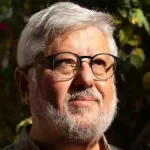Gershon Baskin, a former mediator in the Gilad Schalit release deal, claimed on Saturday in a post on X, formerly Twitter, that he obtained an agreement with Hamas for a three-week deal that would see the release of the remaining 107 hostages in Gaza, which includes an end to the war, an Israeli withdrawal of the Gaza Strip, and a release of a number of Palestinian prisoners.
Baskin did this after the Hostages and Missing Families Forum contacted him earlier this month to encourage him to negotiate with the terrorist organization on their behalf directly, he wrote.
However, the Forum disputed Baskin’s statements, saying that “the headquarters of the Hostage and Missing Families Forum did not contact any party to conduct negotiations for the return of the hostages on its behalf,” Israeli media reported.
The Forum stated that they considered the Israeli government to be solely responsible for returning the remaining hostages home.
“The Hostage and Missing Families Forum can deny that they contacted me. It is important for me to emphasize: I did not make the appeal to Hamas on my own accord,”
Baskin told Ynet regarding the Forum’s response.
He also told Ynet that he did not bother asking about the identity of the Palestinian prisoners, saying that discussions are being held on that matter in Doha and Cairo.
How the hostages would be released
“I checked with Hamas if they are ready to talk about releasing all the hostages in one stroke or several strokes within three weeks – which is the time the IDF needs to re-prepare the border and withdraw from Gaza. I also asked them if they had a problem with the Philadelphi Corridor and if it would be hermetically sealed from the Egyptian side with US supervision.
“They said it’s an Egyptian sovereign question and that they’re not ready for any Israeli soldiers to be in Gaza, especially not on the Gazan side of the corridor,”
he continued.
Like in his efforts to release Schalit in 2011, Baskin worked in a “system” or a “secret channel,” as he described in his post. The system allowed him to develop communication with the hostages Hamas is holding, he claimed.
Baskin wrote that last May, he returned to working in the system but was asked to stop two weeks after sending messages and receiving responses. Baskin told the Post that the system is mostly communication by talking over the phone and writing in Telegram, and occasionally communicating on WhatsApp.
In his post, Baskin alleged that Prime Minister Benjamin Netanyahu was responsible for this, saying he may have “found out that I was operating a direct and secret channel that was very active and did not want such a channel.”
He also accuses the Israeli leader of not wanting to end the war in Gaza, alleging the prime minister cared more about the Philadelphi Corridor than the remaining hostages while saying that Hamas agreed to the proposal that would see 107 hostages freed.
“We should stop being afraid of the prime minister. We do not live in a dictatorship. There is no single decision-maker here. There is also a government, a Knesset, and a people,”
Baskin told Ynet following his talks with the Hamas negotiating team.



